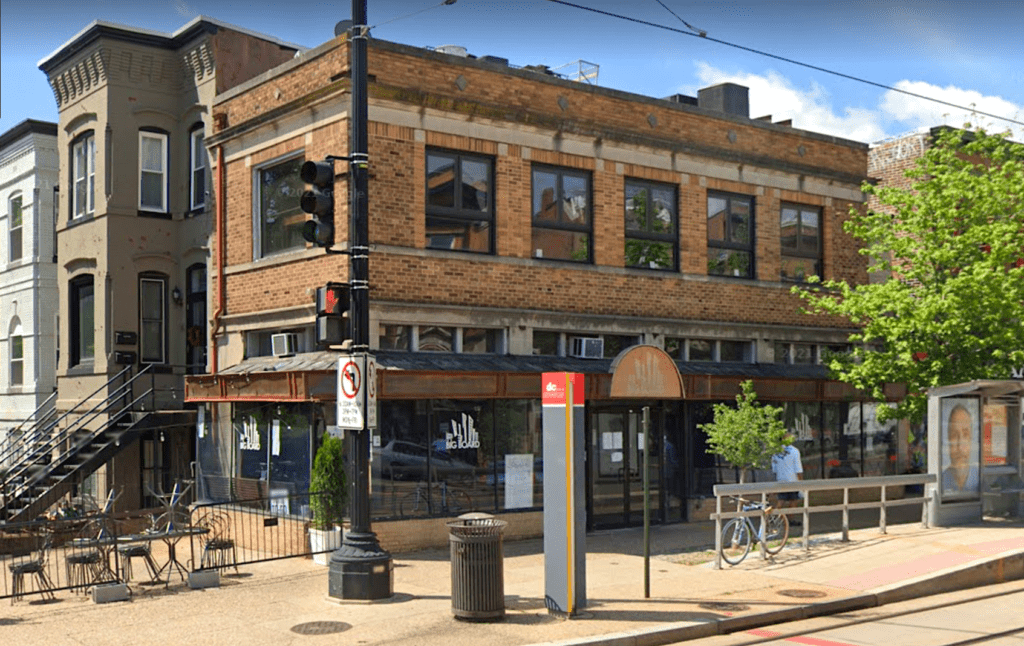Covid in D.C.: Uncertainty, Tighter Regulations, Defiance, Fear, Shrugs
By • January 31, 2022 0 1420

The course of the Covid-19 pandemic and reactions to it during the last week of January 2022 in Washington, D.C., including Georgetown, reflects what the entire nation is experiencing: uncertainty, fear, resistance and shrugs.
Variant infections continue to spread, but symptoms are mild. At least 40 percent of cases are asymptomatic, according to the American Medical Association. Hospitalizations and deaths are below 2020 levels by almost triple digits in the District and decreasing every week. As of Dec. 2021, no D.C. resident under the age of 19 had died from Covid-19, according to the DC Health Department.
Public and private reactions to changing government mandates about wearing masks, showing proof of vaccination and Covid testing results are across the board.
Enforcement of Mayor Bowser’s restrictions vary. On Jan. 28, the DC Alcoholic Beverage Regulation Administration suspended the business license of the Big Board, a pub at 4th and H Street NE, for violating city requirements that employees and patrons wear face masks and patrons show proof of vaccination during the past two weeks. The closure notice reported that owner Eric Flannery repeatedly told an investigator that the establishment would not comply with the vaccination requirements. He received repeated warnings and citations totaling $2,000 since Jan. 14.
Georgetown establishments that have received verbal warnings from ABRA include Amigo Mio, El Centro DF and Flavio.
Mandates for everyone in D.C. to wear masks while indoors at D.C. businesses and public buildings has varied over the past two years. There was a brief loosening of the indoor mask mandate in late summer. But with the appearance of the highly contagious Omicron variant, the indoor requirement was extended a few months at a time. On Jan. 26, Bowser extended the “limited public health emergency” until Feb. 28.
But the mayor has made it clear since the first Covid-19 Public Health Emergency on March 13, 2020, that no D.C. uniformed law enforcement officer would enforce the mask mandate unless there was a (presumably violent) altercation. It is up to business establishments to enforce the city regulations or face a fine and possible closure. Businesses like Safeway, CVS and Apple, which previously had allowed customers to decide whether or not to wear masks, now require them.
Increasingly, however, it appears that customers are the ones who chastise the non-masked. “I can’t police it all the time,” one restaurant owner told The Georgetowner after an irate young man vociferously chastised three older women who sat unmasked at a table before ordering any food. “Customers usually come in masked and take them off as soon as they sit down,” the owner said. The young man then stood masked outside waiting for his takeout order.
Masking and vaccinating school children and teenagers has become a fraught topic. Most everyone agrees that in-person learning is essential and schools should only switch to online work as a last resort. Masks are mandatory not only in the D.C. schools but on most playgrounds. Nevertheless, on Jan. 25, dozens of D.C. high school students walked out of class protesting that “it’s just not safe.” “The many comments I receive about wearing masks in schools is split 50-50 between parents who demand them and those who don’t,” Ward 2 State School Board representative Allister Chang told The Georgetowner.
Various measures such as shortening quarantine periods after student or teacher exposure has not seemed to reduce D.C.’s (and the nation’s) biggest school problem to date, however: falling numbers of certified teachers, substitutes, staff and bus drivers available to keep the schools open. Increasingly, they call out sick or say they are in quarantine due to exposure.
Georgetown University delayed its spring in-person classes from until Sunday, Jan. 30, due to rising Covid variant cases. Students had until Jan. 21 to get their required vaccinations. Now, returning students are “strongly encouraged” to take a PCR or antigen test within 24 to 48 hours prior to attending class — and, if positive, to isolate in place. A rapid antigen test is required upon arrival on campus, as is a PCR test within 24 hours after arrival on campus. It was not stated who, how and where these regulations are enforced.
As of Jan. 31, weekly asymptomatic testing will restart for students, faculty and staff on campus, university officials announced. In addition, students, faculty lecturers, guests and staff are required to wear “properly-fitted, high-grade masks” (e.g., N95, KN95, KF94), according to campus officials. Serious or persistent noncompliance may result in ongoing suspension of access to university facilities and corrective or disciplinary actions and sanctions.
Still, compliance appears confusing throughout the District. White signs taped to the Big Board pub’s glass doors promised that the establishment would be open Saturday at 5 p.m. and Sunday, starting at 3 p.m. But larger yellow signs also displayed on the doors, issued by DC ABRA, announced that there would be no craft beer, wine or spirits served with the pub’s usual fare of burgers and sweet potato fries, according to press reports.

